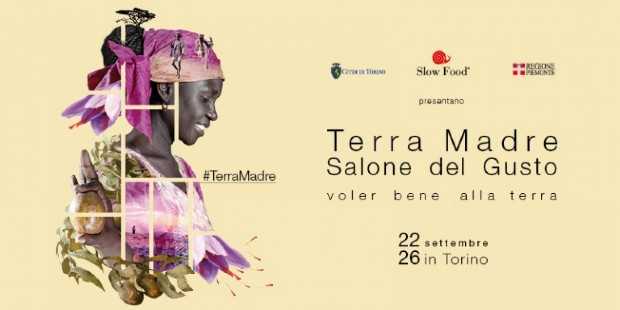Terra Madre Salone del Gusto (from September 22 to 26, Turin, Italy) welcomes 57 new Presidia from 18 different countries this year: part of the Slow Food Foundation for Biodiversity‘s ambitious project to protect small-scale producers and promote endangered culinary traditions around the world.
In recent days the Slow Food Foundation has reached an important milestone by establishing the 500th Presidium: the Tlaola Serrano Chili Pepper in Mexico – an entirely female Presidium and an example of social and economic emancipation of indigenous women linked to the rediscovery and enhancement of biodiversity.
The theme of Terra Madre Salone del Gusto – loving the earth – makes the 300 Presidia present at the event the standard-bearers of a network which in safeguards 500 local productions including raw milk cheeses, animal breeds, plant varieties, honeys, traditional techniques and fishery resources.
29 international Presidia are represented for the first time in the market at the Valentino park, coming from Europe, Africa, Asia and the Americas.
Italy alone presents 28 Presidia, including the first Presidium spread throughout the national territory: Extra-Virgin Olive Oil. All the Italian Presidia are located in Via Roma and Piazza San Carlo, in the center of Turin.
New International Presidia
In Africa, the Slow Food network is present in 30 countries and is committed to promoting local food and biodiversity, through the Presidia and 3000 school and community gardens.
Four new African Presidia will be present at Terra Madre Salone del Gusto: São Tomé and Príncipe Robusta Coffee, a coffee with a balanced, fragrant and soft flavor; Climbing Yam, a Ugandan tuber known locally as balugu, that may be eaten fresh, boiled or fried; Baleni Salt of South Africa, harvested by women in a swamp, about a hundred meters from the Klein Letaba River; and Arusha Stingless Bee Honey (Tanzania), a multi-flower honey with a liquid consistency and a sweet-tart flavor, made by black stingless bees near the Ngurdoto village, in the north of the country.
The presence from the Americas is also significant. From Canada, the Okanagan Sockeye Salmon harvested by Syilx indigenous peoples using traditional methods, completely exploiting each part of the animal, with the backbones/fish heads distributed to the community for fish soup.
From Mexico, in addition to the 500th Presidium (the Tlaola Serrano Chili Pepper), there is the Tepetlixpa Native Beans Presidium, seven varieties that are intercropped with corn, vegetables and wild greens that have excellent nutritional value; the Mexican Plateau Agave, appreciated for its sugar content and thirst-quenching leaves; the Yucatán Peninsula Hairless Pig, known since the Maya era for its low-fat meat and intense taste; the Yucatán Peninsula Pumpkin Seeds, which are roasted and ground and used to prepare traditional condiments like sikil pak; the Yucatán Peninsula xunankab Bee, one of 16 stingless species that live in that area, crucial in guaranteeing the survival of the forest.
From Colombia, the Sierra Nevada de Santa Marta Porcelana Cacao, a wild local variety characterized by thin white seeds with a strong aroma. The Presidium – made up of 36 families of cocoa growers – is officially presented at Terra Madre Salone del Gusto.
From Peru we’ll find the Tailin Panela, a natural sweetener made from sugar cane grown at high altitudes (over 1,500 meters above sea level), and the newly established Presidium of tarwi, better known as lupin, used in many traditional recipes like picante, a dish made of potatoes, yellow peppers, onion, garlic, toasted corn, rocoto chili pepper and, of course, lupin beans.
From Brazil, there’s the Caatinga Mandaçaia Bee Honey, produced by stingless bees and characterized by a multifloral, persistent fragrance, and the Caatinga Passion Fruit, to be eaten fresh or drunk as juice.
Asia is represented by three new Presidia from Indonesia: the Cingagoler Honey, dark brown in color, and with aromas of coconut or palm flowers; the Tengkawang Nut Oil, also known as “green butter,” which is extracted from the fruit of a plant native to Borneo; and Heritage Yogyakarta Banana Varieties, growing in a volcanic area of Java province which are at the center of traditional cuisine, served fresh, mashed, fried or dried.
Another ten new entries from Europe: Croatia presents Peljesac Varenik, an unusual, highly concentrated grape syrup, while from Macedonia there is the Macedonian Honeybee, traditionally raised in trmki, small conical hives made of straw, rushes and mud and the Stanushina Grape, from kominyak wine is made, ruby-red in color, and madzun, a beverage with traditional medicinal uses.
The Kurtovo Konare Pink Tomato from Bulgaria is appreciated for its sweetness and meatiness, while the Bazna Pig from Romania is characterized by its black skin and bristles, with a characteristic white band that completely circles the trunk at the height of the shoulders and includes the front legs.
The Czech Republic brings the South Moravian Oskeruše, whose fruits can be eaten dried or used to make preserves, schnapps and liqueurs. From the United Kingdom, Raw Milk Stichelton, a round blue cheese made with raw cows milk according to the traditional, ancient method.
The last remaining producer has been fighting a battle against Stilton’s DOP regulations, which obliges producers to pasteurize milk and, therefore, prevents the Presidium using its proper name.
Finally, from Austria there are the old varieties of cherries of Leithaberg, with a thin skin and a deep red color, still grown together with fruit trees and vineyards, the Waldstauden rye of Waldviertel, sown in a region covered by forests, an ancient variety with an intense taste and high vitamin and mineral content, and the Waldviertler Blondvieh, an indigenous cattle breed raised on the pasture and woodlands of the region, bred for its milk and excellent meat.
You can find all the news about Terra Madre Salone del Gusto at: http://www.salonedelgusto.com, where you can also apply for press accreditation (http://www.salonedelgusto.com/en/info -accreditation /).
For more information, contact:
Slow Food, +39 329 83 212 85, internationalpress@slowfood.it – Twitter: @SlowFoodPress
Region of Piedmont, +39 011 432 2549, +39 335 7586327, donatella.actis@regione.piemonte.it
City of Turin, +39 011 01121976, +39 3421100131, luca.pasquaretta@comune.torino.it


















